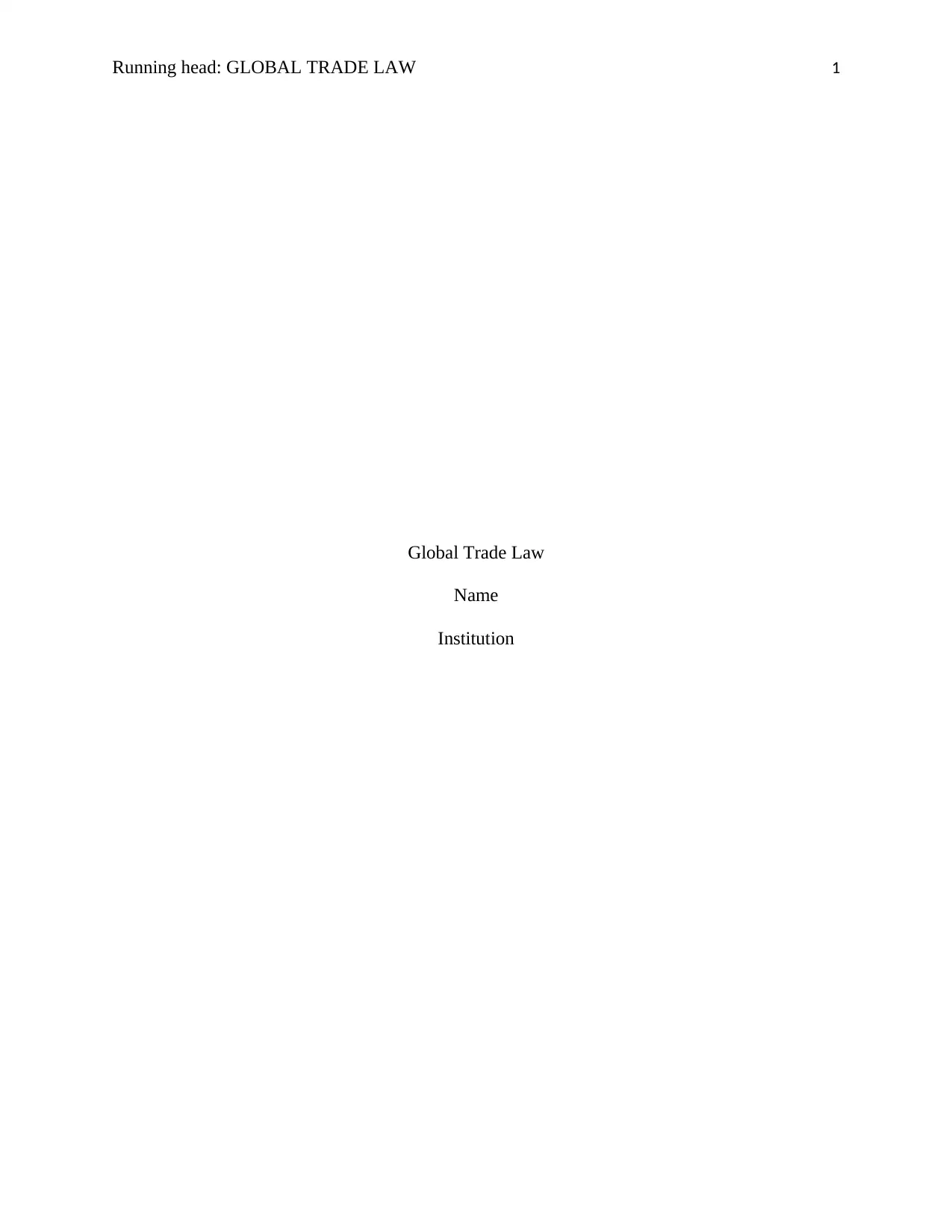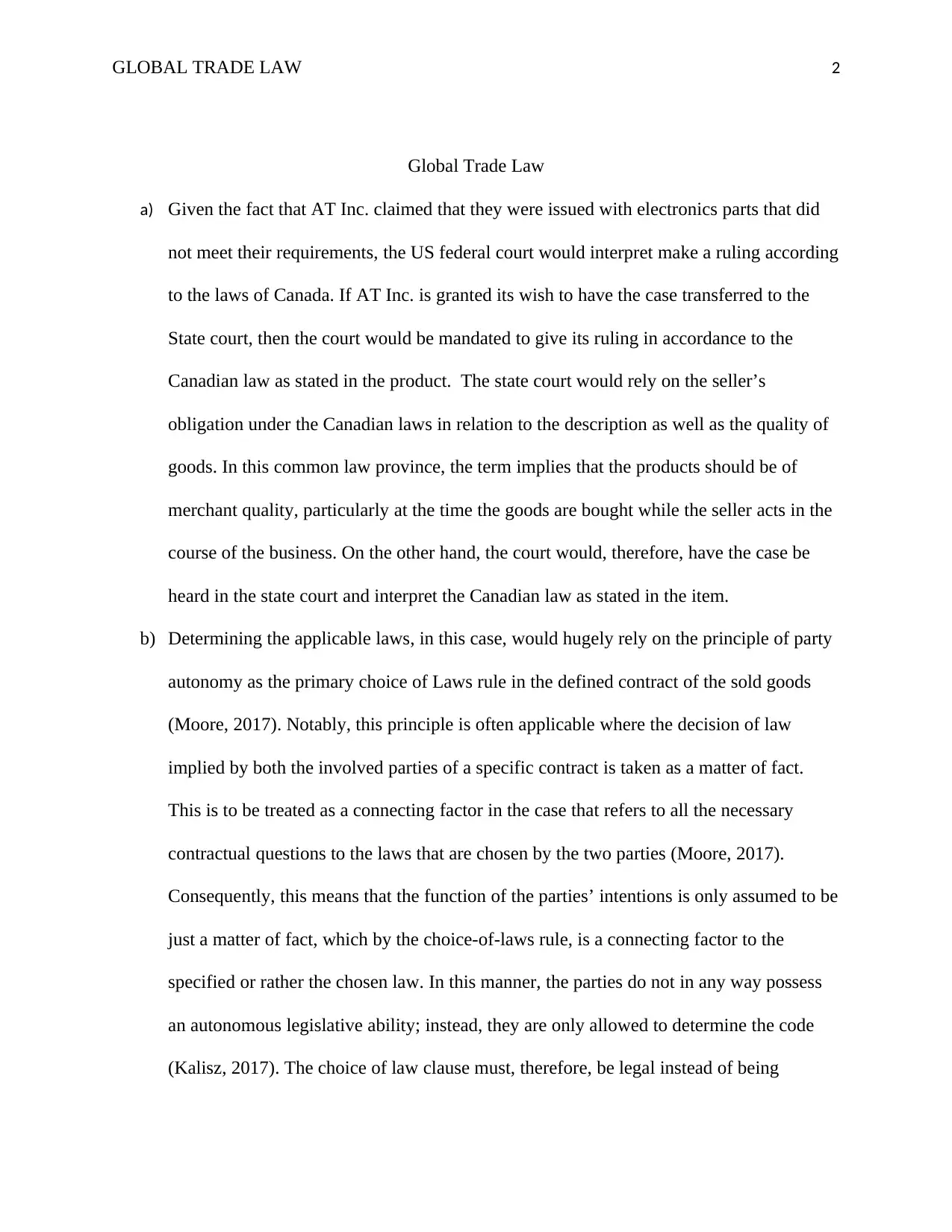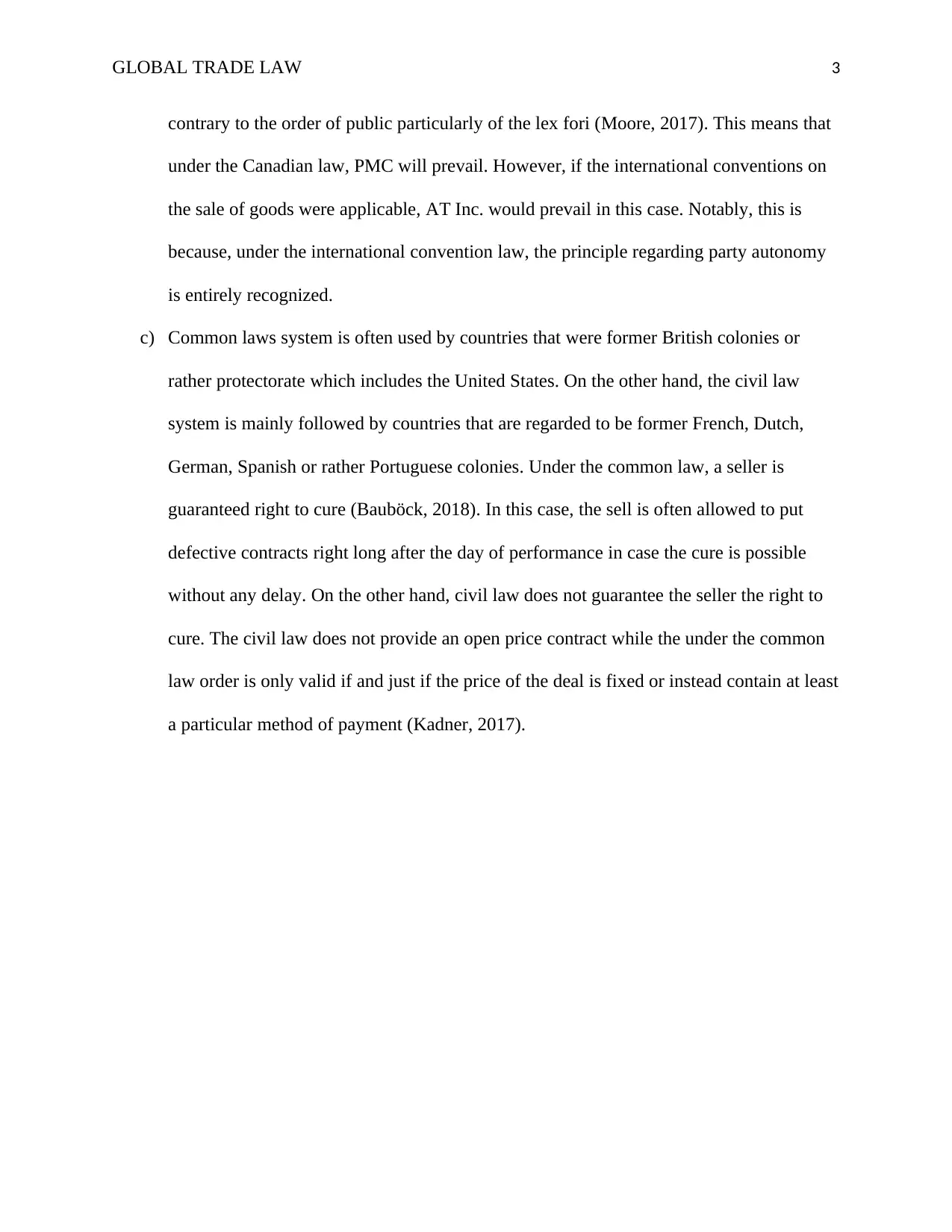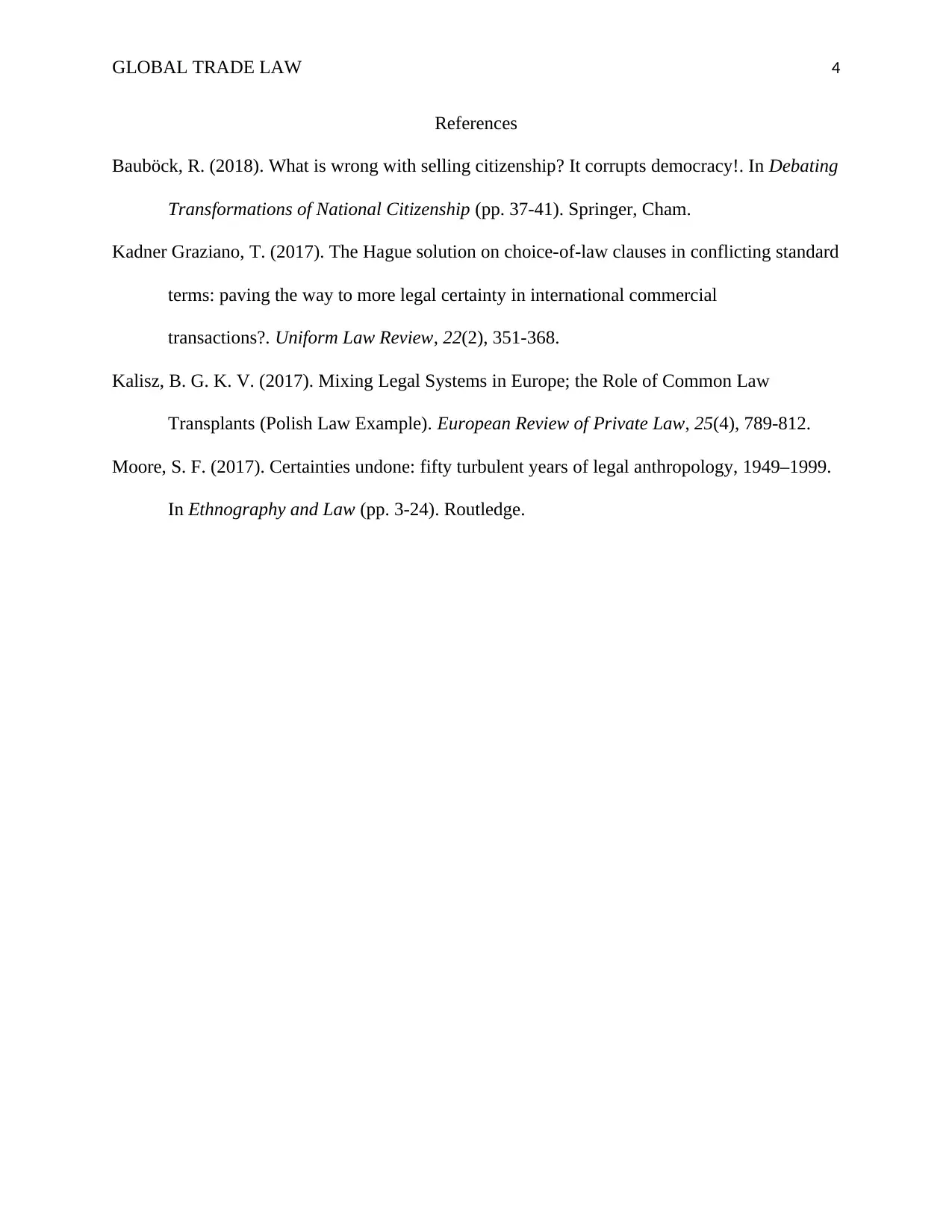Jurisdiction and Applicable Law in Global Trade: A Case Study Analysis
VerifiedAdded on 2023/04/26
|4
|789
|286
Case Study
AI Summary
This case study examines a dispute between AT Inc. and PMC involving electronic parts purchased from Canada. The core issues revolve around jurisdiction and the applicable law, given conflicting clauses in the contract. The analysis considers how US federal courts would rule, particularly regarding the application of Canadian law versus California law. It explores the principle of party autonomy in determining applicable laws and contrasts outcomes under Canadian law and the international conventions on the sale of goods (CISG). Furthermore, the study highlights key differences between common law and civil law systems, specifically concerning the right to cure and open price contracts. Desklib provides similar solved assignments and past papers for students.
1 out of 4










![[object Object]](/_next/static/media/star-bottom.7253800d.svg)